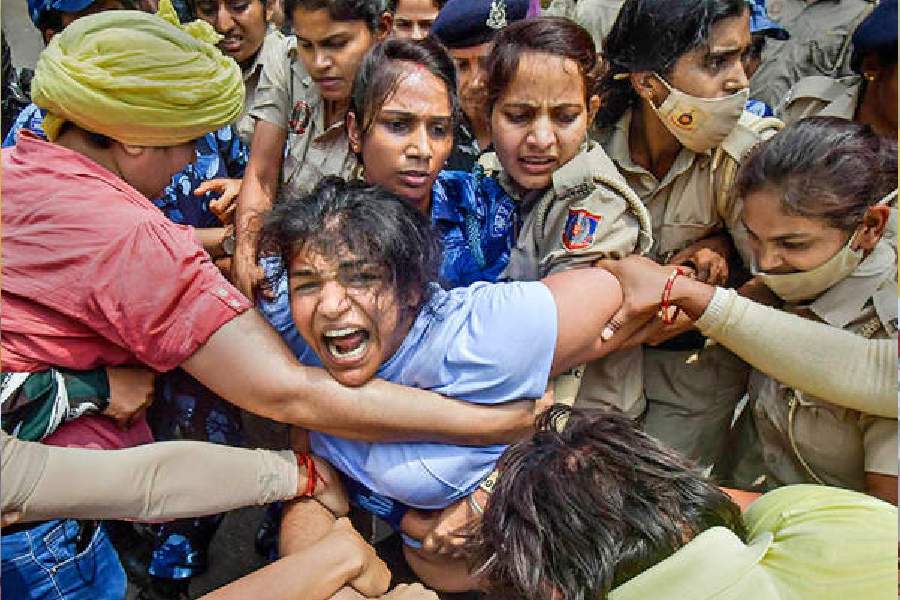Book: Witness
Author: Sakshi Malik with Jonathan Selvaraj
Published by: Juggernaut
Price: Rs 799
Witness contains multitudes. On the face of it, it is the life story of Sakshi Malik, India’s only female Olympic wrestling medallist, to the point where we saw her place her wrestling shoes on a table in New Delhi and announce her retirement. But over its 300 pages, Witness unpeels layers about the sport of wrestling, the white heat of competition, the mind of an elite athlete and, finally, what elite Indian sport is really like.
The book contains a clear-eyed, 360-degree view of the Indian sporting ecosystem and in it, Sakshi’s voice rings not just true but also compelling for which credit is due to her co-writer, the sports journalist, Jonathan Selvaraj. Witness is an unusual Indian sporting autobiography not just for its plain speaking but also for its exploration of a sport that, while rooted in India’s culture, is rarely deconstructed for the lay reader. We see and experience competitive wrestling through Sakshi’s mind and eyes,
in training and in competition. She is a knot of nerves one moment but the moment the countdown clock begins running down in every bout, she turns into a beast of a competitor who will not quit.
But we know that Witness emerged not so much due to Sakshi’s singular 2016 Olympic achievement but for her part in an act of defiance and courage rarely seen in Indian sport. There had been a protest by badminton players against their federation in 1997 but leading athletes had never before accused their federation boss — a serving member of Parliament — of bullying, abuse and harassment of young women wrestlers. It was Sakshi and two other prominent fellow wrestlers, Vinesh Phogat and Bajrang Punia, whose protest exposed the true place of the athlete on the ladder of influence when up against those in authority.
When the protest had begun, Sakshi had been sure it would have been a “one-day matter” and that “someone from the government would come up to us and tell us they’d agreed to our demands.” She then details the meetings she went to and the response she received from some of the most powerful people in the country — the Union home minister, Amit Shah, and the erstwhile sports minister, Anurag Thakur. It took two months for the POCSO case against the former Wrestling Federation of India president, Brij Bhushan Sharan Singh, to be registered. The government promised one thing and did another. Babita Phogat, a former-wrestler-turned-politician, backstabbed the protesters.
Sakshi’s account of the wrestlers’ protest is the truest illustration of the consequences of the involvement of political power in Indian sport. Sakshi writes, “It took me a long time to understand that the athlete is never the priority. What matters is just how the athlete can make you look. The PM uses sportspersons for promoting himself and we are also willing to be used… our love for sport makes us blind to the fact that we are being used.”
If you have never read a book about an Indian athlete, excluding cricketers, start with Witness. It is the best introduction to what sports means and stands for our aspiring athletes, particularly our young women. And also what is the value of their lives and careers before and after an Olympics even if they win medals.









